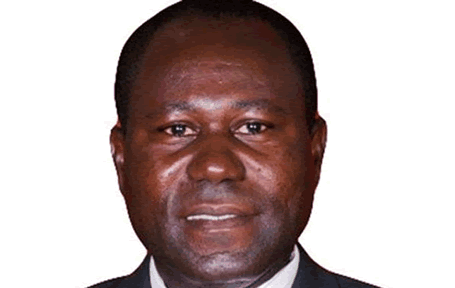
Policy think tank Danquah Institute (DI) has pinpointed a crucial factor behind the substantial 10.8% surge in the fiscal deficit recorded in 2020: a shortfall in revenue mobilization.
In a second edition of the Institute’s planned monthly media encounter held on Wednesday, April 17, 2023, dubbed “Profiling & Analysis of Ghana’s Debt from 2009 to 2023”, DI Head of Research, Dr. Frank Bannor, underscored the significance of this revenue shortfall as a primary driver of the widening fiscal gap.
According to the economist, this deficit was primarily attributed to a substantial shortfall in revenue mobilization, largely influenced by adverse domestic and external factors.
Citing statistics and data from the Bank of Ghana and Finance Ministry, Dr. Bannor emphasised that Total Revenue and Grants for the first six months of 2020 stood at GH¢22 billion, accounting for 5.7% of GDP.
Downward slide
He mentioned that this figure fell significantly below the target of GH¢29.7 billion, which represented 7.7% of GDP. He said this outcome shown that a year-on-year decline of 5.8%, in contrast to the 10.5% growth observed during the same period in 2019.
He said throughout the review period, domestic revenue totalled GH¢21.6 billion, equivalent to 5.6% of GDP, considerably below the target of GH¢29.02 billion, representing 7.5% of GDP. However, Dr. Bannor indicated that the fiscal deficit marginally declined to a single digit of 9.2% in 2021, and slightly to 9.4% in 2022.
“With the extensive fiscal consolidation measures implemented by the government, the World Bank forecasts a deficit of 4.6% of GDP in the just ended 2023 fiscal year, which is notably lower than the 9.4% deficit recorded in 2022,” he stated.
He debunked claims that one of the arguments been bundled around is that, the low deficit was as a result of the fact that this government had received more revenue than its predecessors.
Contrary to this misconception, he said the available data from the Ministry of Finance shows the highest total revenue and grants as a percentage of GDP received by any government within the last 15 years was recorded in 2012, reaching 20.9% of GDP under the NDC.
“Astonishingly, this was the same year that a fiscal deficit of 11.6% of GDP was recorded,” he pointed out. He stressed that the highest revenue and grants as a percentage of GDP so far recorded under the current government is 15.8% in 2022.
“We have so far analysed public debt as a percentage of Gross Domestic Product (GDP), and provided a thorough explanation on the fiscal deficit. Nonetheless, one important question that begs for answer is, what has government used the money borrowed for?, he asked.
According to him, “Like I have said before, even though in normal political discourse in Ghana public debt gets a negative press. It is however an important economic tool and the source of investment financing for governments all over the world”.
Stock of public debt
He stated that available data for the period, 2017 to 2023, show that the present government had added about $21.1 billion to the stock of public debt. However, he said it was instructive to note that the NPP government had judiciously expended the funds and there are significant tangible testimonies that account for the resources.
In line with this, he provided a comprehensive data on loans signed since the NPP government assumed power in 2017 to 2022, and the projects it has been used for.
Reason for analysis
The DI Head of Research said the chosen topic had become necessary because, within local commentary, contrasting viewpoints had emerged to explain the country’s debt situation.
He noted that while one perspective attributes Ghana’s mounting debt to factors such as corruption, incompetence and mismanagement, casting blame on COVID19, Russian-Ukraine War, and excess energy capacity payments, another faction had directed criticism towards current government and alleging that Government had resorted to borrowing to fulfil populist campaign promises.
These promises, he cited, include initiatives such as the implementation of Free Senior High School (SHS), the restoration of trainee allowances for teachers and nurses, the reduction or abolishment of ‘nuisance’ taxes, the provision of free or subsidized utilities (water and electricity) during the Covid-19 pandemic, and what some perceive as the ambitious Agenda 111 project aimed at constructing numerous hospitals across the country.
He said the difference in viewpoints underscores the complexity of Ghana’s debt situation and the various factors contributing to it – prompting ongoing debate and scrutiny within the public sphere.
“As stated during the maiden edition of our press series, the Danquah Institute remains steadfast in our conviction that a thorough examination and discussion of facts, supported by rigorous research and data are essential in providing the citizens of Ghana with enhanced clarity, information, and context regarding pertinent national issues.
“Through our commitment to evidence-based discourse, we strive to foster a more informed and enlightened public discourse that promotes transparency, accountability, and progress in Ghana’s socio-political landscape,” he added.
Read Full Story


























Facebook
Twitter
Pinterest
Instagram
Google+
YouTube
LinkedIn
RSS